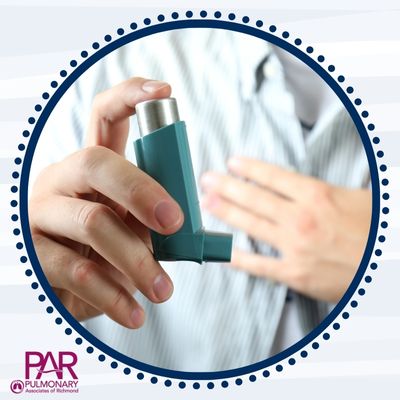Asthma is a long-term condition that affects the airways in your lungs. The tubes that allow air in and out of your lungs become narrow, swollen, and produce extra mucus, resulting in shortness of breath, breathing difficulties, coughing and wheezing.
Asthma often starts during childhood, but anyone can have it. Attacks can occur daily or every once in a while, mainly when triggered by various irritants that cause allergies. Pulmonary Associates of Richmond offers an overview of asthma and how it affects lung health. Some asthma triggers include:
- Stress
- Airborne allergens such as pollen
- Air pollutants such as smoke and dust
- Physical activity
- Cold
- Viral infections such as the common cold
- Medications such as aspirin, ibuprofen, naproxen sodium, and beta-blockers
- Particular food and beverages such as beer, wine, and dried fruits
The specific cause of asthma is unknown, but it happens due to a strong body reaction against a substance in the lungs. The strong response is inflammation, resulting in the swelling and narrowing of your airways.
Asthma can also be caused by a viral infection when you were a baby as the immune system was still developing. It can also be genetically inherited.
Connection Between Asthma and Lung Health
With asthma, the lining of your airways tends to be hypersensitive, red, and swollen. The hypersensitive state causes a reaction to allergens you are exposed to in your day-to-day life. When your lungs react to the allergens, your airways swell even more, making it more difficult to breathe. The muscles around the airways may tighten, causing difficulty in breathing.
If asthma is left untreated, the lungs may get injured, and they cannot perform their functions effectively.
Optimize Lung Health
There are several lung exercises that can supplement medicine and other asthma treatments. They include;
NASAL BREATHING
Breathing through your nose warms the air and cleans it as opposed to breathing through the mouth, resulting in reduced asthma attacks.
BUTEYKO BREATHING
Buteyko breathing teaches you how to breathe slower and more in-depth. Breathing fast is not suitable for asthma patients since it causes shortness of breath.
PURSED LIP BREATHING
To do this type of exercise, breathe in slowly through your nose, then purse your lip and breath out slowly to a count of four. Pursed lip breathing should help with shortness of breath.
THE PAPWORTH METHOD
The Papworth method combines breathing with relaxation techniques. During this exercise, you breathe in and out slowly and steadily from your diaphragm and through your nose to ease breathing symptoms.
DIAPHRAGMATIC BREATHING
This type of breathing exercise strengthens your diaphragm and decreases your body’s oxygen demands. To practice, lie on your back, bend your knees and put a pillow under them. Place one hand on your chest and the other on your stomach, and breathe in slowly through your nose. Your stomach should move as you breathe in, but your chest should not move. Breathe out with your mouth closed and repeat until your chest doesn’t move.
Other practices that can improve the condition of your lungs include:
- Walking — it is an excellent form of exercise for asthma patients as it increases lung capacity and helps you relax. Start small, and increase distance and speed as you progress.
- Avoid smoking to improve mucociliary clearance of sputum.
- Hydrate for easy mobilization and removal of sputum.
How Can A Pulmonologist Help?
Your doctor may send you to a specialist if you experience shortness of breath and its cause is not clear. You can also see a specialist if you experience:
- Severe or persistent cough
- Dizziness or fainting
- Fatigue
- Wheezing
- Problems identifying the cause of asthma attacks
A pulmonologist is a physician who specializes in the respiratory system. He/she will give you an accurate diagnosis using procedures such as sociometry, bronchoscopies, chest X-rays, blood work and CT scans. Once you have a diagnosis, your pulmonologist will use medicine, pulmonary rehabilitation, and therapies to create a treatment plan for you. A pulmonologist will work with a surgeon if need be and will coordinate care with others such as respiratory therapists and local support groups.
You can live normally with asthma if you properly manage it. Follow your treatment plan, take care of yourself and be proactive even with exercises. With time, your visits to the ER will reduce, as the symptoms will be well managed.
If you would like to work with an expert to maximize your lung health with asthma, schedule an appointment at Pulmonary Associates of Richmond.
